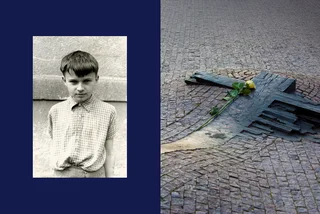July 5 and 6 are public holidays in the Czech Republic, as well as the unofficial kickoff to summer. People everywhere take advantage of the back-to-back free days to start their summer holidays. We take a look at the three men we owe these bonus days off to.
On July 5 we pay homage to two saints, Cyril and Methodius. The Greek missionaries brought Christianity to the Czech lands in the ninth century. They are credited as the founders of the Slavic language and introducing the Cyrillic alphabet. They also translated the Biblical Gospels into Slavonic, which at the time had no written form.
They are nicknamed Apostles to the Slavs because of their influential work with the language and culture of the regional people, and in 1980 Pop John Paul II named them co-patrons of Europe, along with Saint Benedict of Nursia.
The Czech Republic celebrates them on July 5, in Roman Catholic tradition of their day. Eastern Orthodox´s remember them on May 11.
The following day we commemorate the date in Jan Hus, Catholic priest, philosopher and reformer, was burned at the stake as a heretic. Hus could be considered the Czech John Wycliffe as the English church reformer had a great influence on Hus´ beliefs. His followers became known as Hussites and the Hussite Wars led to a reformed church in Bohemia. The Roman Catholic Church wasn´t so fond of him and excommunicated him in 1411. He´s considered a key contributor to the Protestant movement, even having an influence on Martin Luther, another well-known church reformer a hundred years later.
He preached at the Bethlehem Chapel in the center of Prague and was rector of Charles University. His teachings were quite inspirational; however he objected to much of what the Catholic Church was doing at the time, including personal wealth of the clergy and preaching in Latin versus the language of the people. After his death, his ashes were scattered in the Rhine River and the so-called Hussite Wars that followed lasted well into the 15th century. Although he has been celebrated as a saint in various religions, the Catholic Church has never named him one. In 1990, Pope John Paul II visited Prague and set up a commission to investigate his death. The Hus Commission met in Rome and after the conference the Pope stated that he regretted Hus´ death.
Most people know the Jan Hus memorial erected in the middle of Old Town Square; but language lovers have something else to remember him by. We can thank him for introducing the use of diacriticals, especially the háček, into Czech spelling.













 Reading time: 2 minutes
Reading time: 2 minutes 




















